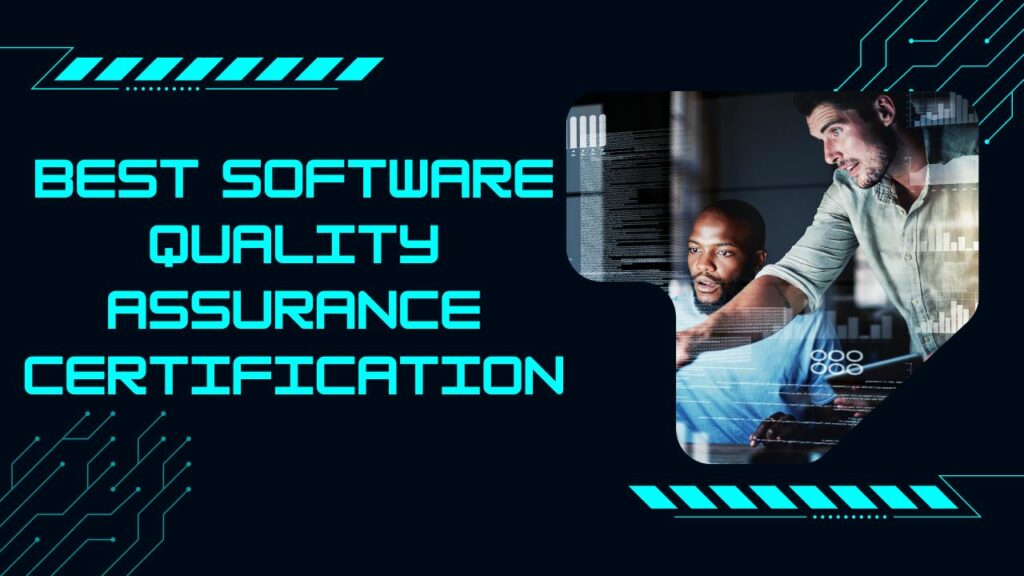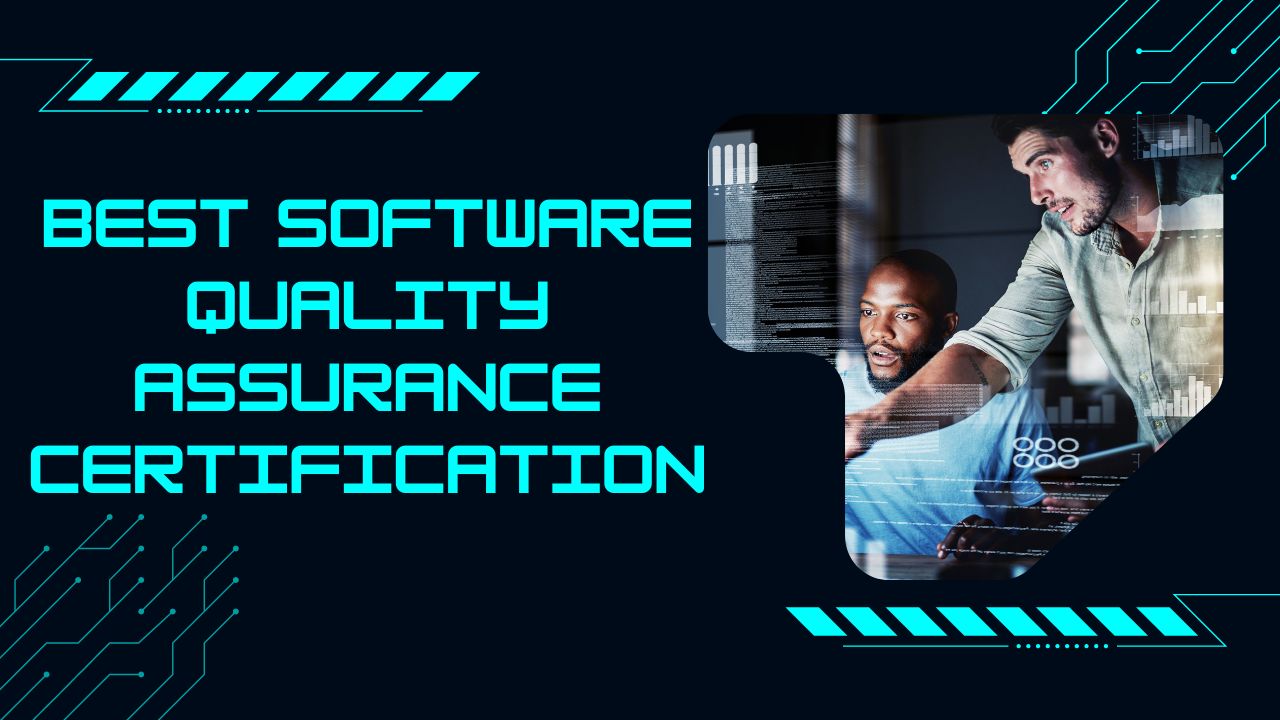 Software testing is a process that enables ventures to assess and validate the quality of each software component. This ensures that the software can effectively respond to various inputs from stakeholders. Various software quality assurance certifications are available to professionals seeking to improve their skills and showcase their proficiency in the industry. This article presents a comprehensive list of the best software quality assurance certification.
Software testing is a process that enables ventures to assess and validate the quality of each software component. This ensures that the software can effectively respond to various inputs from stakeholders. Various software quality assurance certifications are available to professionals seeking to improve their skills and showcase their proficiency in the industry. This article presents a comprehensive list of the best software quality assurance certification.
What are quality assurance certifications?
Quality assurance certifications are recognized qualifications that attest to an individual’s expertise, abilities, and mastery in the quality assurance domain. Certifications are commonly granted by certification bodies or professional organizations and are widely acknowledged within the industry as a standard of exceptional performance.
Quality assurance certifications authenticate an individual’s proficiency in executing and upholding quality management systems, guaranteeing conformity to standards and optimal practices, and propelling incessant enhancement in the quality of products or services. The topics covered in these instances typically pertain to quality management, quality control, quality assurance methodologies, process improvement, and regulatory requirements that are pertinent to the subject matter.
Quality assurance certifications offer professionals a recognized credential that verifies their proficiency and expertise in quality management. Professional certifications are a valuable asset for individuals seeking to stand out in the competitive job market and drive ongoing enhancements to products, services, and processes.
Types of quality assurance certifications available
Multiple quality assurance certifications are accessible, which serve diverse quality management aspects and industries.
The most common types of quality assurance certifications are:
- Software
- Hospitality
- Consumer assistance
- Ranching and farming
- Medical care
- Computer technology
- Medical equipment
- Food safety
- Automotive
- Manufacturing
You may also check out: Top 12 Best Software Marketing Campaigns in 2023
The best software quality assurance certification
1. LambdaTest Certifications
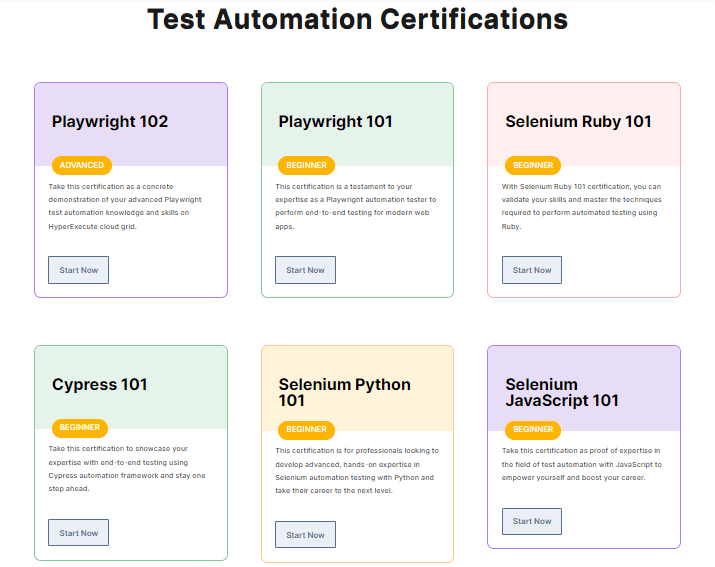
LambdaTest is a software platform designed for test orchestration and execution. It enables developers to conduct website and mobile app testing across more than 3000 real browsers, devices, and operating system combinations. LambdaTest offers certifications that enable individuals to assess their automation testing abilities. These certifications are recognized as valuable additions to one’s resume and cover various programming languages and testing frameworks such as Selenium, Cypress, Playwright, Java, TestNG, JavaScript, Ruby, C#, and more.
Topics:
- Selenium Test Automation Skills
- Web Designing
- Test Management and Design
- Testing Techniques, Execution, and Analysis
2. CAST (Certified Associate in Software Testing)
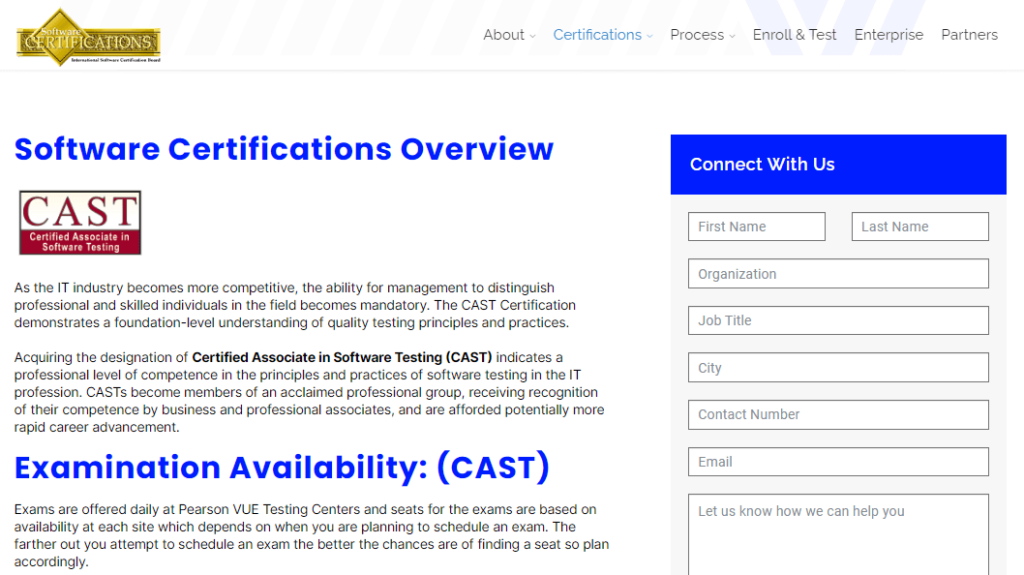
The International Software Certification Board (ISCB) offers the Certified Associate in Software Testing (CAST) certification. This software is intended for individuals who are novices to software testing or possess restricted expertise in the domain. The primary focus of CAST is on the essential principles and methodologies of software testing.
Topics:
- Fundamentals of Testing
- Testing Techniques
- Test Management
- Test Design
- Test Execution and Analysis
3. Professional Scrum Developer

Scrum.org is the organization that provides the Professional Scrum Developer (PSD) certification. The Scrum Developer Certification is a specialized credential that aims to authenticate the expertise and proficiencies of software developers operating within Scrum teams. Professional Scrum Developer (PSD) certification is a specialized credential that emphasizes the technical facets of software development in the context of the Scrum framework. This certification is a highly relevant credential for individuals in the software development, programming, and engineering fields who are currently or intend to work in Scrum development teams.
Topics:
- Scrum Fundamentals
- Agile Software Development Practices
- Scrum Development Team
- Agile Software Engineering Techniques
- User Stories and Acceptance Criteria
- Definition of Done
- Technical Excellence and Continuous Improvement
4. CSQA (Certified Software Quality Analyst Certification)
The Quality Assurance Institute (QAI) provides the Certified Software Quality Analyst (CSQA) certification. This certification is widely acknowledged worldwide and serves as a validation of professionals’ expertise and abilities in software quality assurance and quality control. The CSQA certification is best for individuals who work in software quality, software testing, quality analysis, software development, and quality management. It exhibits a high level of proficiency in the principles and methods of software quality assurance.
Topics:
- Quality Principles and Concepts
- Quality Assurance Processes and Practices
- Quality Control Practices
- Software Quality Metrics and Measurement
- Software Verification and Validation
- Software Reviews and Audits
Candidates who wish to obtain the CSQA certification must succeed in a demanding test that gauges their knowledge and comprehension of the aforementioned subjects. They must also satisfy particular qualifying requirements, which often involve a mix of education and professional experience in the area of software quality assurance.
5. Certified Software Tester (CSTE)
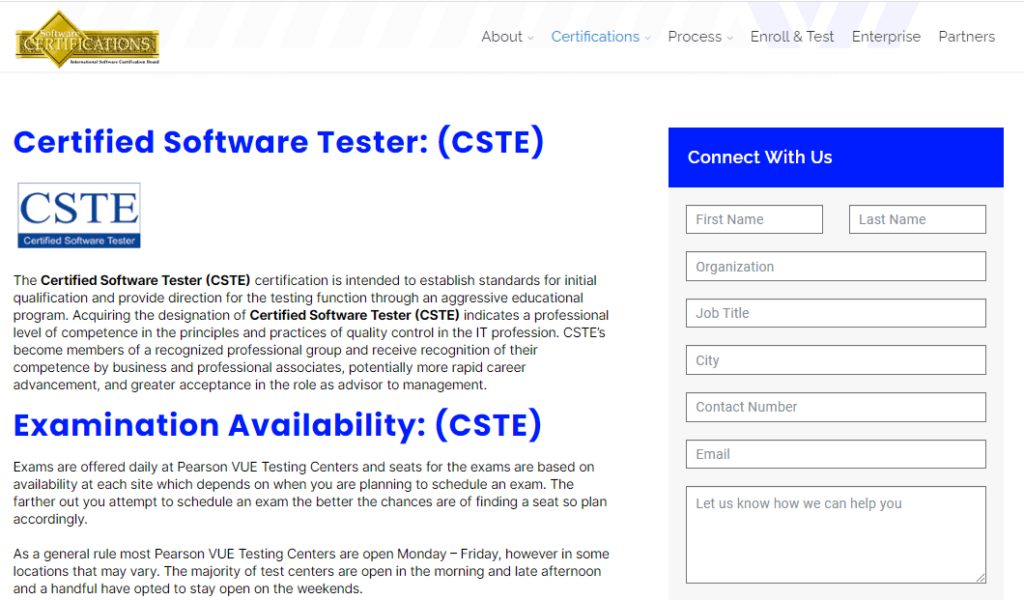
The Quality Assurance Institute (QAI) offers the Certified Software Tester (CSTE) certification, which is intended to certify those who work in the fields of software testing and quality assurance. Software testers, quality assurance specialists, test managers, and those involved in software development and quality control can all benefit from the CSTE certification. It exhibits a high level of proficiency in the principles, methods, and best practices of software testing.
Topics:
- Testing Fundamentals
- Test Design Techniques
- Test Management
- Test execution and evaluation
- Test Automation and Tools
- Software Development Lifecycle (SDLC)
Candidates must pass a thorough exam that evaluates their knowledge and comprehension of the subjects contained in the certification syllabus to become CSTE certified. Additionally, they must fulfill particular qualifying requirements, which usually involve a mix of training and work experience in software testing or quality assurance.
6. Test Automation University
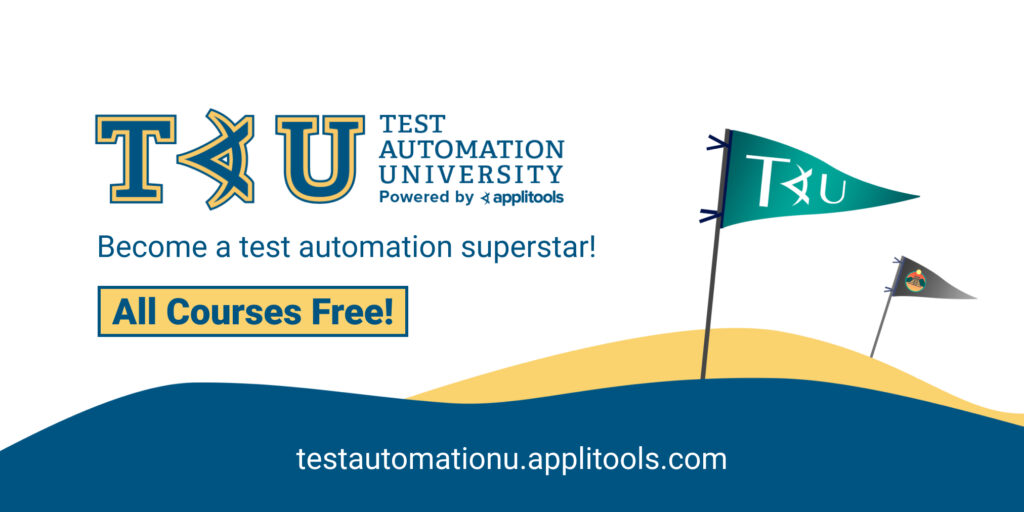
An online learning platform called Test Automation University (TAU) provides numerous free courses and other materials about test automation. It is a community-driven initiative run by the visual testing and monitoring platform Applitools, and it includes courses made by professionals in the field. TAU offers a multitude of materials to help you keep up with the most recent trends and best practices in test automation, whether you are a novice or a seasoned professional.
Topics:
- Test automation
- Programming languages
- API testing
- Visual testing
7. International Software Testing Qualifications Board (ISTQB) Certification
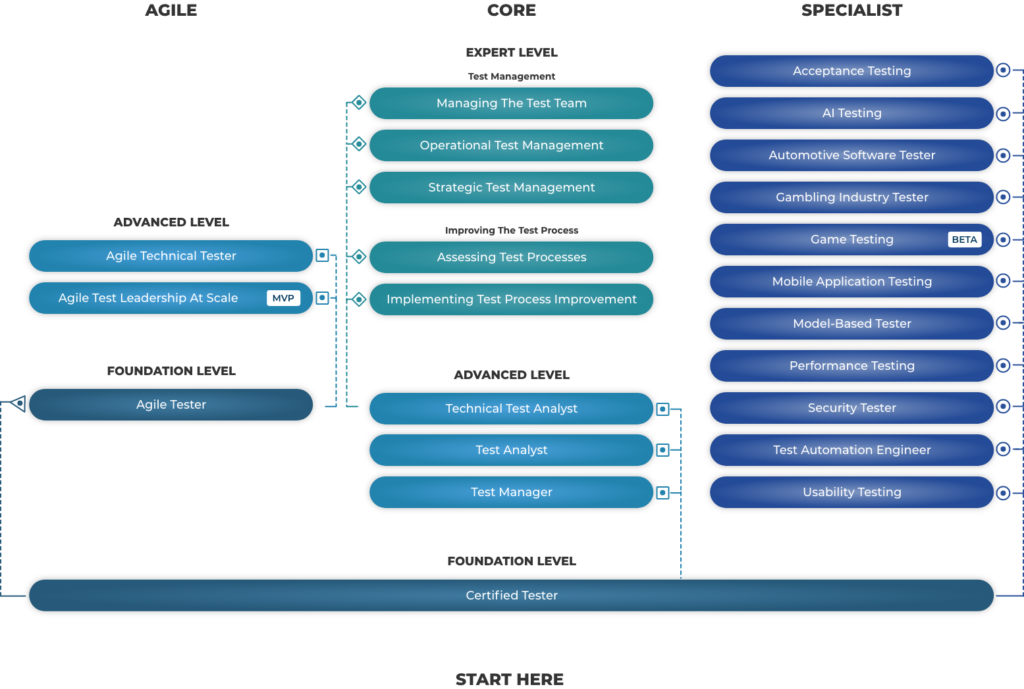
An internationally recognized certification program for software testing professionals is the International Software Testing Qualifications Board (ISTQB) designation. It provides a hierarchical certification structure with various levels of certificates, each of which focuses on a particular facet of software testing. Software testing experts can confirm their knowledge and skills using the standardized framework provided by the ISTQB certification program. People who use it can improve their testing skills, comprehend industry best practices, and establish their expertise.
Topics:
- Testing Fundamentals
- Test Design Techniques
- Test Management
- Test Execution and Defect Management
- Test Tools and Automation
- Software Development Life Cycle (SDLC)
- Testing in Agile and DevOps Environments
- Test Metrics and Reporting
- Risk-based Testing
- Test Process Improvement
8. Certified Cloud Tester (Foundation Level)
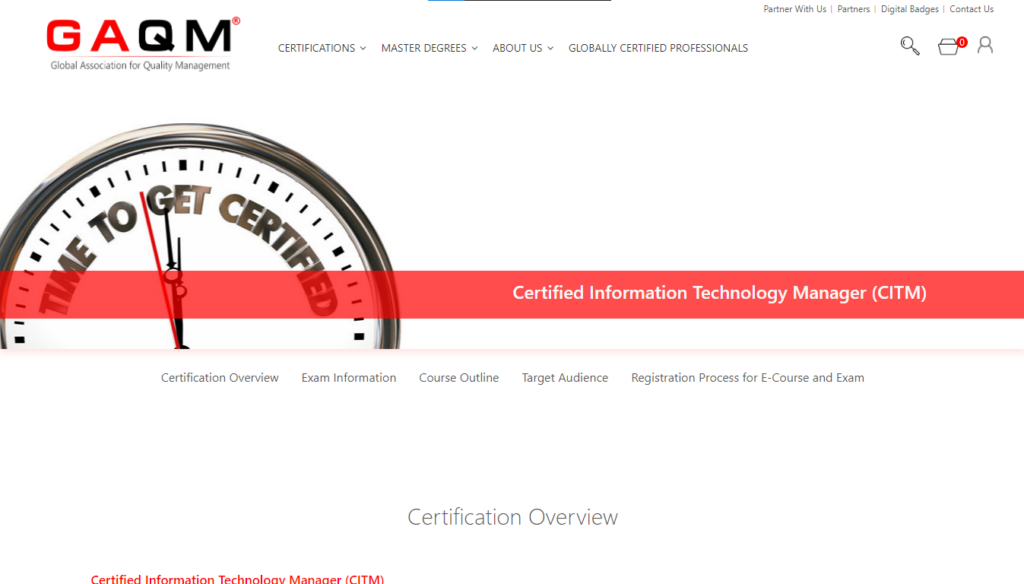
The Global Association for Quality Management (GAQM) offers the GAQM CCTFL certification, commonly known as Certified Cloud Tester Foundation Level. The certification is intended to verify a person’s fundamental level of knowledge and comprehension in the subject of cloud testing.
Topics:
- Cloud Computing Basics
- Cloud Testing Fundamentals
- Cloud Testing Processes
- Cloud Testing Techniques
- Cloud Testing Tools and Technologies
- Cloud Testing Challenges
To obtain the CCTFL certification, candidates must pass an examination that evaluates their comprehension of the aforementioned topics. The exam is primarily made up of multiple-choice questions and can be taken online or at certified testing facilities.
9. Certified Quality Engineer (CQE)

The American Society for Quality (ASQ) offers the Certified Quality Engineer (CQE) certification, which is a highly regarded credential in the quality engineering industry. CQE certification is a specialized credential aimed at professionals who exhibit proficiency in diverse areas of quality engineering and are dedicated to enhancing quality improvement methodologies. The Certified Quality Engineer (CQE) certification is a highly relevant credential for individuals working in quality engineering, quality control, quality assurance, and quality management positions.
Topics:
- Quality Management Systems
- Quality Tools and Techniques
- Quality Planning and Analysis
- Quality Improvement and Problem-Solving
- Product and Process Control
- Quality and Reliability Engineering
- Quality Leadership and Communication
10. Certified Tester Advanced Level Test Analyst (CTAL-TA)
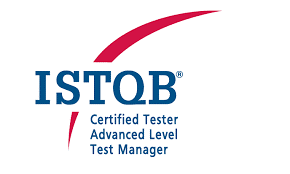
The CTAL-TA certification is a crucial component of the ISTQB’s Advanced Level certifications for software testing. It is designed to equip professionals with advanced skills and knowledge in test analysis. The CTAL-TA certification program is designed to enhance one’s expertise in test analysis, design, and execution. It is tailored to individuals seeking advanced knowledge and skills in these areas. The CTAL-TA certification is a specialized credential aimed at seasoned test analysts, test engineers, test consultants, and other experts engaged in test analysis and design endeavors. This certification can be obtained by passing an examination that evaluates candidates’ theoretical knowledge and practical application of testing concepts through scenario-based multiple-choice questions.
Topics:
- Test Analysis and Design Techniques
- Test Implementation and Execution
- Test Management
- Test Techniques for Non-Functional Testing
- Test Tools and Automation
- Reviews and Defect Management
- Test Process Improvement
11. Test Automation Engineer (CT-TAE)
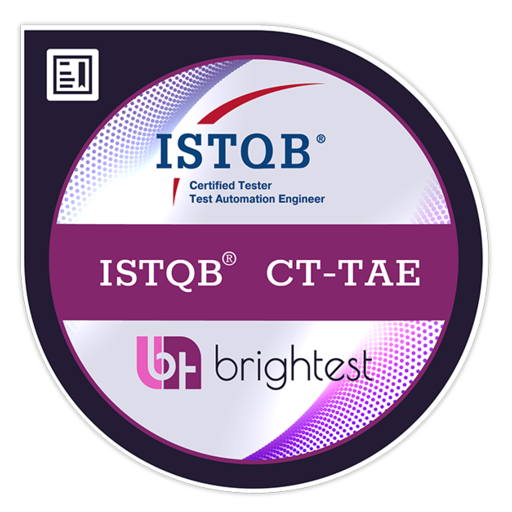
The International Software Testing Qualifications Board (ISTQB) provides a certification program for Test Automation Engineers, which is commonly referred to as the “ISTQB Certified Tester – Test Automation Engineer” (CTFL-TAE). The CTFL-TAE certification is a specialized credential that emphasizes the essential knowledge and competencies necessary for proficient test automation in the software testing domain.
Topics:
- Test Automation Principles
- Test Automation Approaches
- Test Automation Planning and Design
- Test Automation Development
- Test Execution and Reporting
- Test Automation Maintenance
- Test Automation Tools and Integration
12. Certified Manager of Software Testing (CMST)
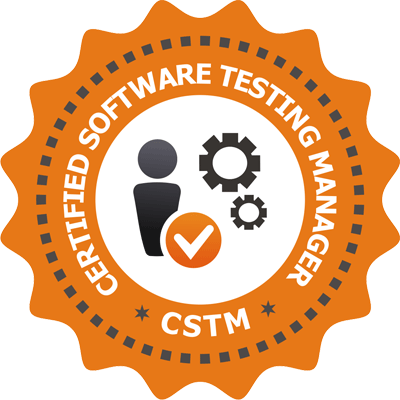
The Quality Assurance Institute (QAI) offers the Certified Manager of Software Testing (CMST) certification, which caters to professionals who oversee and spearhead software testing operations. The CMST certification is a crucial validation of one’s expertise in managing testing projects and teams. It confirms that the individual possesses the necessary knowledge and skills to carry out these responsibilities effectively.
Topics:
- Test Management Principles
- Test Process Improvement
- Test Policy and Strategy
- Test Team Management
- Test Documentation and Reporting
- Test Tools and Automation
- Quality Assurance and Compliance
Why Is Certification in Quality Assurance Important?
Certification in quality assurance is essential since it confers recognition from the industry and verifies that an employee possesses the requisite knowledge and expertise in the subject matter. It does this by establishing a standardized grasp of quality assurance principles and methods, which in turn enhances the credibility of the professional. Certification can also open doors to new job prospects and encourage lifelong learning as well as the development of relevant skills. Certified professionals can speedily cultivate robust professional networks, earn the trust of clients, and demonstrate their dedication to upholding ethical standards. In general, obtaining a certification in quality assurance confers a host of benefits, some of which include job promotion, recognition within the business, and professional development.
Also check out: AI in Quality Control: Improving Productivity and Efficiency
Which is the best certification for a 12+ year QA professional?
Generally, selecting the optimal certification for a seasoned QA professional with over 12 years of experience is contingent upon several factors, such as personal objectives, professional ambitions, and industry-specific prerequisites. Experienced QA professionals can derive numerous benefits from obtaining various well-known certifications. In the tech industry, certain certifications hold significant value and are highly respected by professionals. Among these are the Certified Software Quality Analyst (CSQA), ISTQB Advanced Level certifications, Certified Manager of Software Testing (CMST), Certified Software Tester (CSTE), Certified Agile Tester (CAT), and Scrum.org certifications.
When it comes to choosing a certification, it’s important to take into account your career aspirations, the specific skills and knowledge you want to acquire, the level of recognition within your industry, and how relevant it is to your particular domain.
To become a certified QA professional, it is important to thoroughly research the certification body, exam requirements, study materials, and reputation within the QA community. This will ensure that you are ready and knowledgeable about the certification process. It is best that you take the time to carefully review all available information and resources before beginning your certification journey. By doing so, you can increase your chances of success and demonstrate your expertise in the field of QA. As a seasoned Quality Assurance (QA) professional with over 12 years of experience, choosing the right certification can be a crucial step toward advancing your career. Seeking advice from industry experts and mentors can prove to be invaluable in making this decision.
Also read: 15 Best Software Conferences in 2023: The Ultimate Guide

